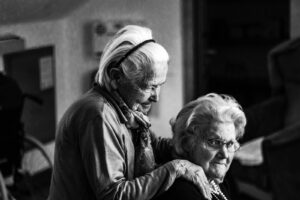Emergency legislation ‘will protect NHS volunteers’ battling Coronavirus
The government has outlined emergency legislation to tackle coronavirus, including measures to allow people to leave their jobs and volunteer to care for those affected.
Health Secretary, Matt Hancock, said volunteers, who already play a central role in helping the health and social care system function, will be given additional employment safeguards so they can leave their main jobs and temporarily volunteer in the event of a widespread pandemic.
Around three million individuals volunteer in a health, community health and social care setting.
Under these proposed measures, government will ensure the jobs of skilled, experienced or qualified volunteers are protected for up to four weeks to allow them to shore up resilience across the health and social care systems. As part of this, leading business groups will be consulted thoroughly about how best to implement these changes.
Following last week’s announcement that measures will also consider emergency registration of health professionals who have since retired, the Bill will also look at ensuring that any retired staff who return to work in the NHS will not have their pensions negatively impacted.
Matt Hancock said: ‘We will do all we can to contain coronavirus, but as we know, COVID-19 is spreading across the world, so I want to ensure the government is doing everything in its power to be ready to delay and mitigate this threat.
‘Public safety is my top priority. Responding to coronavirus is a massive national effort and I’m working with colleagues across government to ensure we have a proportionate emergency bill, with the right measures to deal with the impacts of a widespread COVID-19 outbreak.
‘We plan for the worst and work for the best, and the NHS is working 24/7 to fight this virus. Calls to NHS 111 have increased by more than a third and we have already put in place 500 extra staff to help with this increase.
‘Every person has a role to play in managing the spread of COVID-19 – whether that’s washing your hands more often for 20 seconds or catching your sneezes.’
Health boss said the COVID-19 emergency Bill is also expected to have strong safeguards, including sunsetting after two years, and government is clear that it will only use proposed measures if needed – based on clinical and scientific advice.
New NHS data released this week showed that telephone calls to NHS 111 were up by more than a third compared with the same time last year, with an extra 120,000 calls to NHS 111 in the first week of March.
Between February 27 and March 5, NHS 111 answered 389,779 calls. To help deal with this demand, the NHS have announced around 500 additional initial call responders have already been trained, an increase of 20%, and people can also visit NHS 111 online.
Photo credit – Pixabay
















